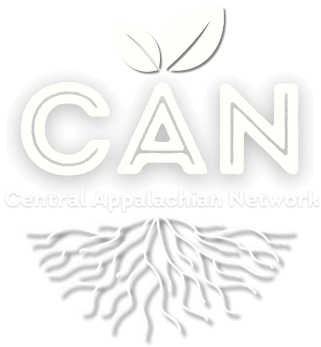
CAN Mini-Grant Funding is Laying the Groundwork for a More Just Energy Transition
In 2022, the Central Appalachian Network (CAN) had the opportunity to distribute Rapid Response Mini-Grants to fund projects for CAN Clean Energy Clean Working Group participants to advance and defend clean energy policies in Virginia, Tennessee, West Virginia, Ohio, and Kentucky. These are the success stories of those grants.
Energy Efficient West Virginia (EEWV) is a group of West Virginia residents and organizations dedicated to promoting energy efficiency for residential, commercial, and industrial utility customers in the state. The organization advocates for energy efficiency at the West Virginia Public Service Commission, state legislature, and through collaborations with local communities and municipal governments.
In early August 2022, CAN’s Clean Energy Working Group awarded EEWV a $5,000 grant toward a five-month legal representation and public outreach initiative for unexpected WV Public Service Commission (PSC) cases. EEWV collaborated with community group leaders to revive the West Virginians for Energy Freedom network, providing a grassroots approach to electric consumer and sustainability protections at the West Virginia Public Service Commission.
The organization participated in biweekly meetings with Earthjustice, a nonprofit law organization dedicated to the conservation and protection of the environment. Thanks to this collaboration, up to $200,000 per year is funded for pro-bono or in-kind legal representation and expert witness testimony in local cases. Its initiative also included a multipronged approach to litigation, official commentary, expert witnesses, and grassroots community outreach. Through these methods, EEWV continues to spread awareness and advocate for energy efficiency for all residents of West Virginia.
GRANT SUCCESSES
UNFAIR RATE INCREASES UNCOVERED – EEWV’s Legal and Policy Director and In-State Counsel Emmett Pepper researched and prepared for several important PSC cases on behalf of EEWV, Solar United Neighbors of West Virginia, and the West Virginia Citizen Action Group. One case included a 12% proposed utility rate increase, resulting in an additional $18 average per month tacked onto residential ratepayer electric bills. CAN funding is being used to cover an additional retainer for Mr. Pepper’s work supporting EEWV’s PSC interventions.
PROTECTING RATEPAYERS
- Another focus of EEWV’s project is supporting energy efficiency programs and shielding ratepayers from hefty coal-fired power plant costs through a grassroots approach encouraging demand-side resources. EEWV strives to inspire action and empower communities to support programs through its energy costs task force.
- An electric affordability and reliability task force, which was formed in response to a request from the West Virginia Coal Association to run the state’s coal-powered plants more often, allows EEWV to talk openly about demand-side resources in many facets to benefit all ratepayers. The organization is attending meetings of this task force and engaging with the public to gain more support for its vision. EEWV is working to be included in the final report among many compelling views from other task force participants.
- EEWV is advocating against forcing ratepayers to pay more money to keep the coal-fired Longview Power Plant online. EEWV will be fully litigating the issue with expert testimony.
FUNDING IS LAYING THE GROUNDWORK FOR A MORE JUST ENERGY TRANSITION IN THE REGION
These cases are crucial opportunities to convey the message of the transition to a clean energy economy. Clean demand-side resources are needed when the costs of running old and expensive coal-fired power plants are shouldered by West Virginia communities. The energy cost task force is more focused on the cost to ratepayers rather than the rates because energy efficiency and solar incentives can slightly increase rates while drastically decreasing costs.
“This grant primarily expanded our ability to intervene at the West Virginia Public Service Commission on issues of rate increase cases and provision of options for consumers to decrease their energy cost by lowering their demand via energy efficiency upgrades and renewable energy installations,” says Robin Blakeman, Executive Director of EEWV.
EEWV regularly collaborates with Solar United Neighbors, West Virginia Citizen Action Group, Sierra Club state representatives, and the Ohio River Valley Institute in litigation on PSC cases, public outreach, campaign management, and more, aiming to meet monthly. It is also closely aligned with the West Virginia chapter of the American Society of Heating, Refrigerating and Air-Conditioning Engineers (ASHRAE), the Building Performance Association, the West Virginia Office of Energy, Coalfield Development Corporation, the West Virginia Community Development Hub, and the BlueGreen Alliance.
Collaboration with groups in a similar field is directly on-point to several aspects of the CAN Clean Energy Working Group’s priorities, like solar energy investment and energy sovereignty. Beyond the five-month grant period, EEWV continues its involvement with CAN by engaging in planned meetings, supporting fundraising, providing information on energy efficiency work underway in WV, and building professional relationships with fellow CAN Clean Energy Working Group participants. The organization looks forward to its future work with CAN.
JOIN CAN’s CLEAN ENERGY WORKING GROUP TO LEARN ABOUT FUNDING OPPORTUNITIES LIKE THIS ONE!
The Clean Energy Working Group is a broad coalition of practitioners accelerating Central Appalachia’s equitable clean energy transition through collective power-building, collaborative funding models, coordinated policy advocacy, and peer learning. Join the next monthly call and learn more on their information page. https://www.cannetwork.org/focus-areas/clean-energy-working-group/
